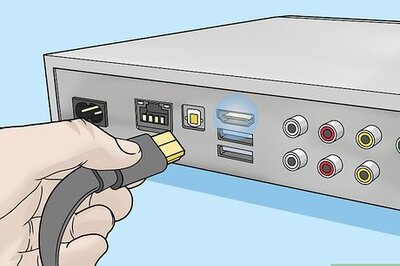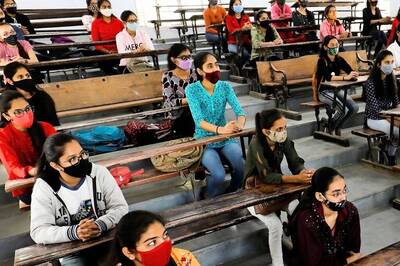
views
Washington: The US has ordered the removal of controversial online files which allowed users to 3D-print their own unregistered plastic handgun at home.
The order from the State Department to Defense Distributed to remove the blueprints for the plastic gun comes after they were downloaded more than 100,000 times.
The department sent a three-page cease and desist letter dated Wednesday to Cody Wilson, Defense Distributed's 25-year-old founder, demanding that the group remove instructions for printing a handgun with a 3-D printer from its website.
Earlier this week Wilson, a self-described "crypto- anarchist" who believes everyone has a right to a gun, posted a video online showing a single shot being fired from "The Liberator," a plastic handgun that was assembled entirely from parts made with a 3-D printer.
Many engineering firms and manufacturers use these machines to test prototypes before starting large-scale production.
On the Defense Distributed website, a one-line banner read, "DEFCAD files are being removed from public access at the request of the US Department of Defense Trade Controls."
The site had been scrubbed of the documents, CNN reported.
Wilson later tweeted "#DEFCAD is going dark at the request of the SOS Department of Defense Trade Controls. Some shapes are more dangerous than others."
At issue was whether Wilson had violated International Traffic in Arms Regulations by posting files on his website allowing users to download and print firearms with 3-D printing technology.
"Defense Distributed may have released ITAR-controlled technical data without the required authorisation from the Directorate of Defense Trade Controls, a violation," the State Department's letter to Wilson said.
The letter also said that Defense Distributed likely did not get the proper approval to release the technical data it had posted online.
Wilson says he founded Defense Distributed as a non- profit and posted the documents in the public domain.
"I have never had to consult them, so I hadn't," Wilson told CNN.
A State Department spokesperson said regulating the export of defence items is a national security issue, the spokesperson said.
Wilson, a law student at the University of Texas in Austin, said he had complied with the State Department's requests but acknowledges his next step will be to find an attorney who can help him fight his case.
"For me, it's important as a symbolic political statement," he said.
Since Monday, politicians in the US have moved swiftly to attack Wilson's 3-D guns. Lawmakers in California, the District of Columbia, as well as a handful on Capitol Hill said they intend to fight block 3-D gun printing technology.



















Comments
0 comment